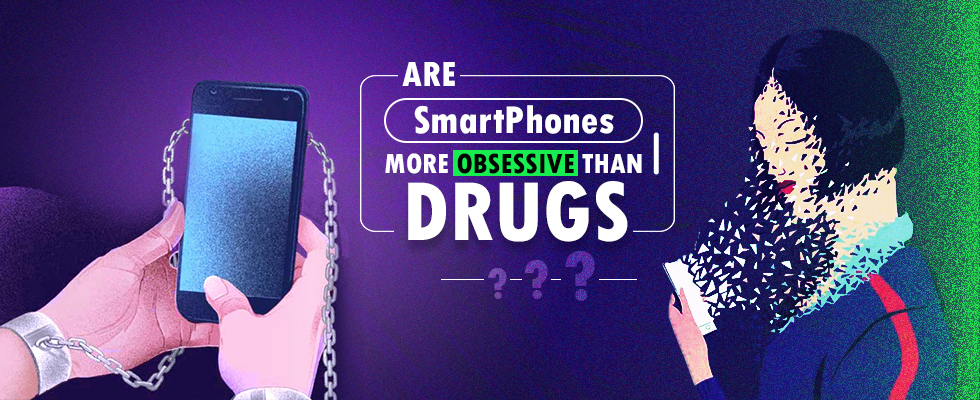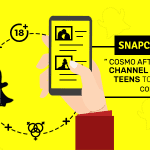The use of drugs trend is rising. Dramatically, the cigarette smoking ratio declined and has become a gateway to drugs. Our generation cannot go a day without using smartphones. But are these useful little devices truly more obsessive than drugs for teens today? New research says yes, and it’s time to pay attention before we’re all slaves to the screen. In this article, we will understand why some researchers feel that smartphones might be the new drug. We will also see what parents can do to regain control and ensure that technology makes our lives better, rather than the other way around.
Teen Drug Use Trends and Statistics
Excessive use of smartphones has devastating impacts on kids’ development.
- According to reports, 47% of parents believed that their kid has smartphone addiction.
- 67% of teachers believed that smartphone has negatively distracted their students.
- 41% of teens feel worried about the number of notifications they receive on their smartphones.
- 67% of teens accept that smartphone has affected their sleeping schedule, and they use smartphones late at night.
- While hanging out with friends, 52% of teens sit quietly and spend their time on their phones.
Declining Drug Use
The survey shows that smartphone addiction has greatly reduced the cases of drug use among teenagers. Smartphones have also played a role in this process, according to some authors. Teens spend much of their time online. That is why they have less time to use drugs.
The Rise of Smartphones
Since smartphones became popular, teen drug use has started to drop. This is not to say one issue is directly causing the other, but some research shows cell phone usage activates the same pleasure centers in the brain that are triggered by drugs. Social media, computer games, and messages are equally capable of giving teenagers the same reward as drugs.
Are Smartphones Addictive?
Most people have described smartphones as very ‘addictive,’ especially adolescents who are in the developmental state of their brains. The constant notifications, the likes, and the messages can provide dopamine. This way, using the phone becomes a form of reward. This loop makes teens develop a desire for more screen time and social interactions with others using mobile phones.
Setting limits
Teens who spend much time on their smartphones can experience sleep problems, anxiety, and depression. Parents should set clear limits around phone use to promote balance and good digital health. Putting down the phone for meals, before bed, and during family time is a great start.
Smartphone decrease in teen drug use. However, it also has negative consequences when overused. Teens need moderation and restrictions to conduct themselves properly in the world of social networks and maintain real-life connections.
Is Cell Phone Growing Source of Concern for Parents?
Yes! The cell phone is a growing source of concern for parents because constantly rewiring our teen’s brains. Previously, drug abuse was an issue, but today drug addiction is decreasing and replaced with the smartphone that is more dangerous and addictive for generation Z. Parents cannot tackle kids with video gaming addiction, social media obsession, and porn addiction. So, devices are addictive than drugs. Young kids sleep with their digital devices that are alarming for parents.
Here are the following reasons that have made cell phones, social media, the internet, mobile gaming, porn, and many more things on the screen are far more lethal than drug usage:
Increase Depression & Anxiety
The excessive use of phone screens due to social media, browsing activity, video gaming, and inappropriate activities on the internet is causing depression among teens. Teens sleep less and spend time on phone screens at least 7 hours a day, which is challenging for parents to get rid of more than drugs. In the end, kids have issues like depression, anxiety, and many more.
Disturb Mental Focus
Cell phones have made our youngsters lose their focus. They listen to the beeps, notifications, and chimes, alerting our kids like they have to update their mobile devices. Online dating on apps like Tinder and Snapchat and live nude video broadcasting on apps like TikTok disturb their concentration on necessary daily life matters. Young teens see their mobile phone screen more than 80 times a day, according to a study. So, cell phones are influencing our behavior and are more likely to disturb teens’ concentration in studies, relationships, friends, and family members.
Affecting Our Built-In Compass
Gone are the days to remember locations in our minds. Today, the young generation is dependent on cellphone technology, and they use GPS trackers and location tracking apps to find out a few kilometers away from the location. Smartphone devices have affected the built-in compass in the human mind. Young teens use technology to find out places they visit frequently rather than using their memory.
Are Smartphones the New Drug?
As a teen, your smartphone is probably your constant companion. You likely can’t imagine life without it! However, some experts argue that phones may be more addictive and obsessive than actual drugs for young people. How is that possible?
Providing a Dopamine Hit
The activity on your smartphone causes a secretion of dopamine in your brain, which is called the “feel good” hormone. When you are scrolling through social media, trying to gain likes or scrolling, it releases dopamine. This creates reward-seeking behavior and cravings for more phone use. It’s quite similar to the dopamine release that occurs when doing certain drugs.
Fear of Missing Out
Teens possess the desire to maintain social connection and awareness of the current activity of other teenagers. In your news feed, the content users consume can result in FOMO. This can make you feel like you have to be checking in frequently so you don’t fall behind or feel left out of the loop. Putting the phone away may create anxiety that you’re disconnected from your social world.
Difficulty Unplugging
Because phones tap into the brain’s reward system and social drives so strongly, they can be very difficult for teens to put down or unplug for a long. You may find yourself mindlessly scrolling through apps, watching videos, or Snap chatting when you have a few spare minutes. Late at night, your phone emits light, and you get stimulated in such a way that you cannot just sleep even when you are so tired.
Modern society cannot imagine life without smartphones. While not physically harmful, like drugs, excessive phone use and obsession can negatively impact well-being, relationships, and development. Finding a healthy balance between technology and life beyond the screen is key. Moderation, self-control, and nurturing real-world social interaction will help ensure your phone enhances rather than dominates your life.
TheOneSpy App to Prevent Kids From Drugs & Excessive Phone Usage
Parents need to look for ways to reduce mobile phone usage by kids. One of the best solutions to overcome this issue is using monitoring apps. TheOneSpy is the one and only Android monitoring app for parents. It is the last hope for parents who are trying to control their kid’s excessive cell phone addiction.
The installation method of TheOneSpy is easy, and it takes just a few minutes to complete the installation and configuration process. It helps in showing the undercover activities. The monitoring software comes up with many powerful features that empower you to watch and control cell phone screens. Users will be able to monitor every activity while staying in stealth mode.
Conclusion:
You decide what’s best for your teen. While the research shows similarities between smartphone obsession and drug addiction, every child is different. Set reasonable limits on phone use, keep communication open, and watch for warning signs.
With compassion and understanding, you can guide your teen toward healthy relationships with technology. We know that cell phones are rewiring our teen’s minds and are more obsessive than drugs. Parents can use phone monitoring apps to analyze internet activities and unveil hidden drug abuse activity of young teens within no time.







